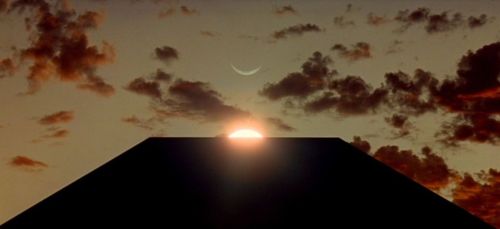"Also Sprach Zarathustra" (Thus Spoke Zarathustra) is one of the seven tone poems composed by the musician born in Munich in 1864, Richard Strauss. Written between the years 1895-1896, it is the freest and more fantastic, and according to some, the most elaborate and difficult, perhaps due to its association with the complex work of the same name by the philosopher Friedrich Nietzsche, on which it is freely based.
A "programmatic" support
After its premiere in Frankfurt under the author's conducting, a heated debate arose that yet was less due to the music than to the complicated program that Strauss developed as a support for the understanding of a programmatic nature work. In this case, a piece of music created under the suggestion of the moods caused by reading a literary text.
On that occasion, Strauss asked to include the following text in the concert hand program:
"First movement: Dawn. Man feels the power of God. Religious wandering. But he continues to yearn. He plunges into passion (second movement) and does not find peace. He turns to science and tries in vain to solve the problems of life with a fugue (third movement). Pleasant melodies sound and he becomes an individual. His soul rises, while the world sinks beneath him. "
 |
| Richard Strauss (1864 - 1949) |
To be frank, it seems like a joke. But the work became part of the universal repertoire since its premiere, until today. The complete work typically lasts about 40 minutes and is divided into nine sections, which Strauss named in consonance with certain chapters of the philosopher's book.
A very brief fanfare... and a "funky version"
The first section, Introduction, or Sunrise, a fanfare less than two minutes long, was featured in Kubrick's 2001 film, A Space Odyssey, which favored its awareness by a wide audience.
On a pianissimo ostinato entrusted to the double basses, the theme is exposed by the trumpet. After traversing between major and minor modes, the piece ends with a spirited and spectacular tutti in C major, which then shuts down to leave the organ alone for a couple of seconds.
The rendition is by the BBC Philharmonic conducted by the Spanish director Juan José Mena.
(Below. a "funky" version).
A "funky" version
Eumir Deodato, Brazilian musician and arranger born in 1943 in Rio de Janeiro who lives in the United States since the mid-seventies, surprised the American audience in 1974 with a great "funky" arrangement of the Introduction to Richard Strauss' work, which earned him that year the Grammy Award for Best Pop / Instrumental Performance.
Some recognition is needed to be made, as well, to the author of the video presented here. Some images from space brilliantly accompany these spectacular ten minutes of music created by Deodato from a piece of classical music, in which jazz, blues, gospel, elements of African tradition coexist... that is, "funky" music.

No comments :
Post a Comment